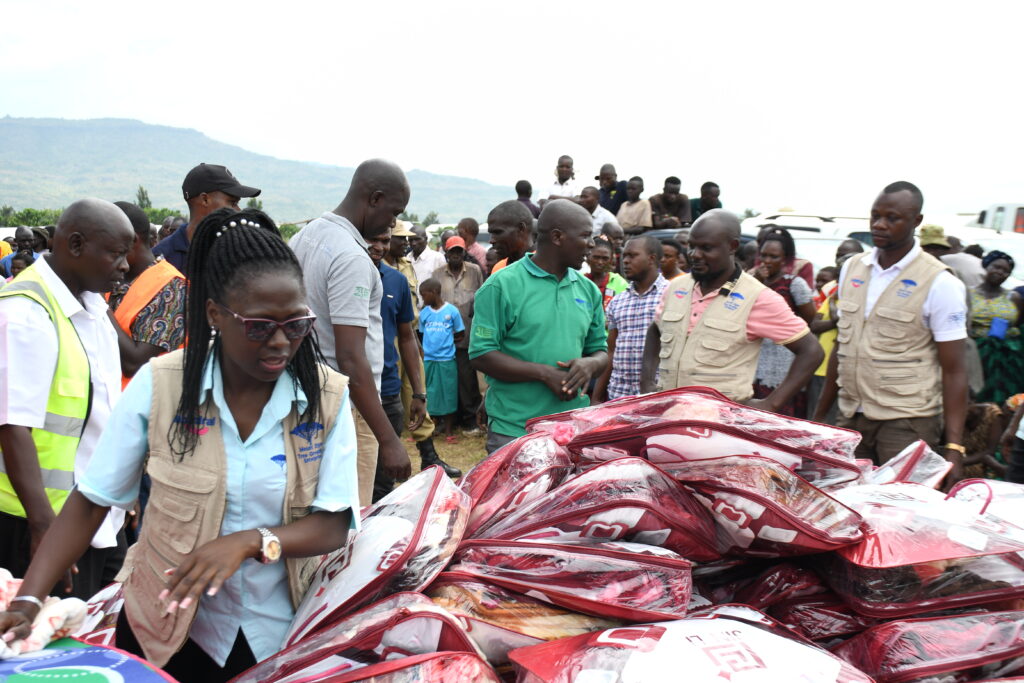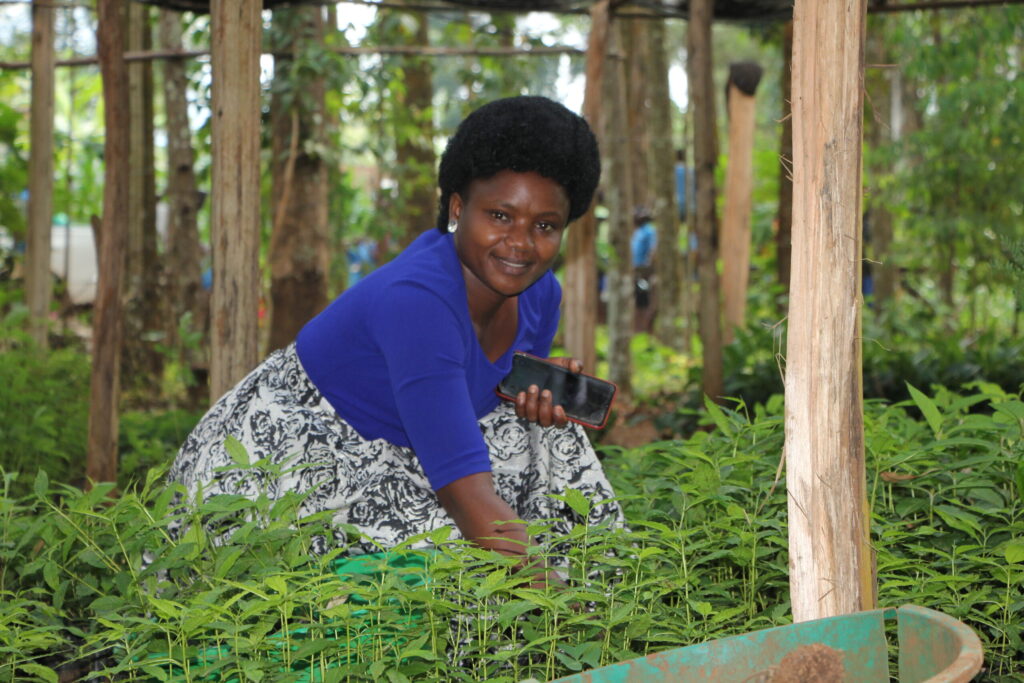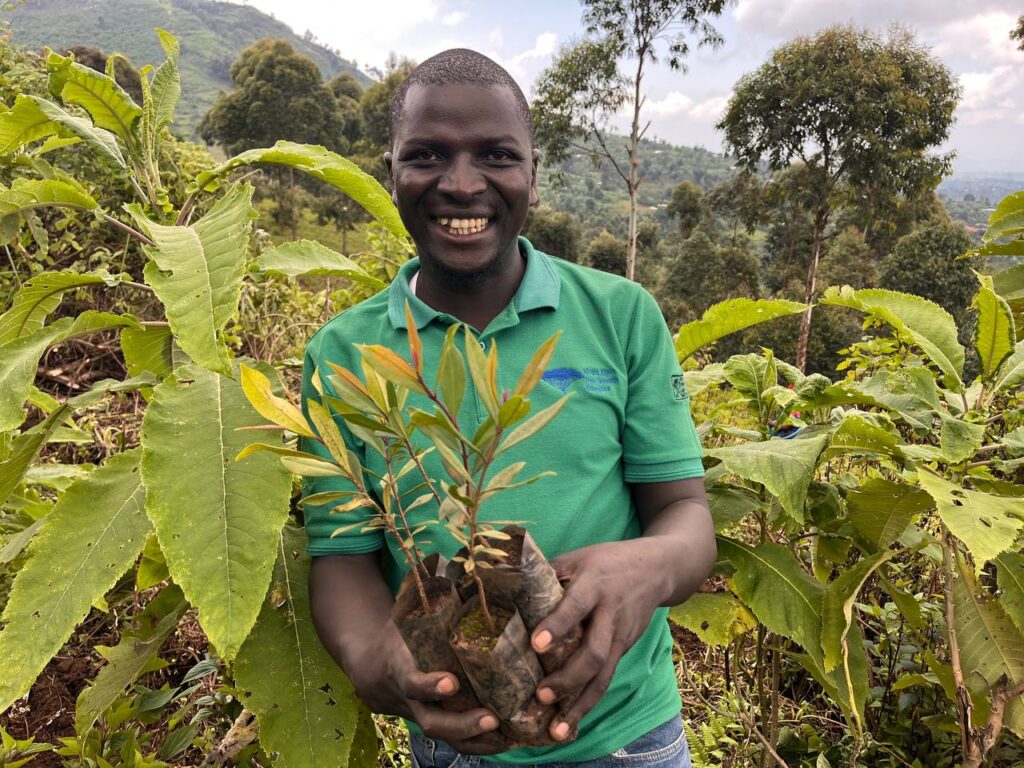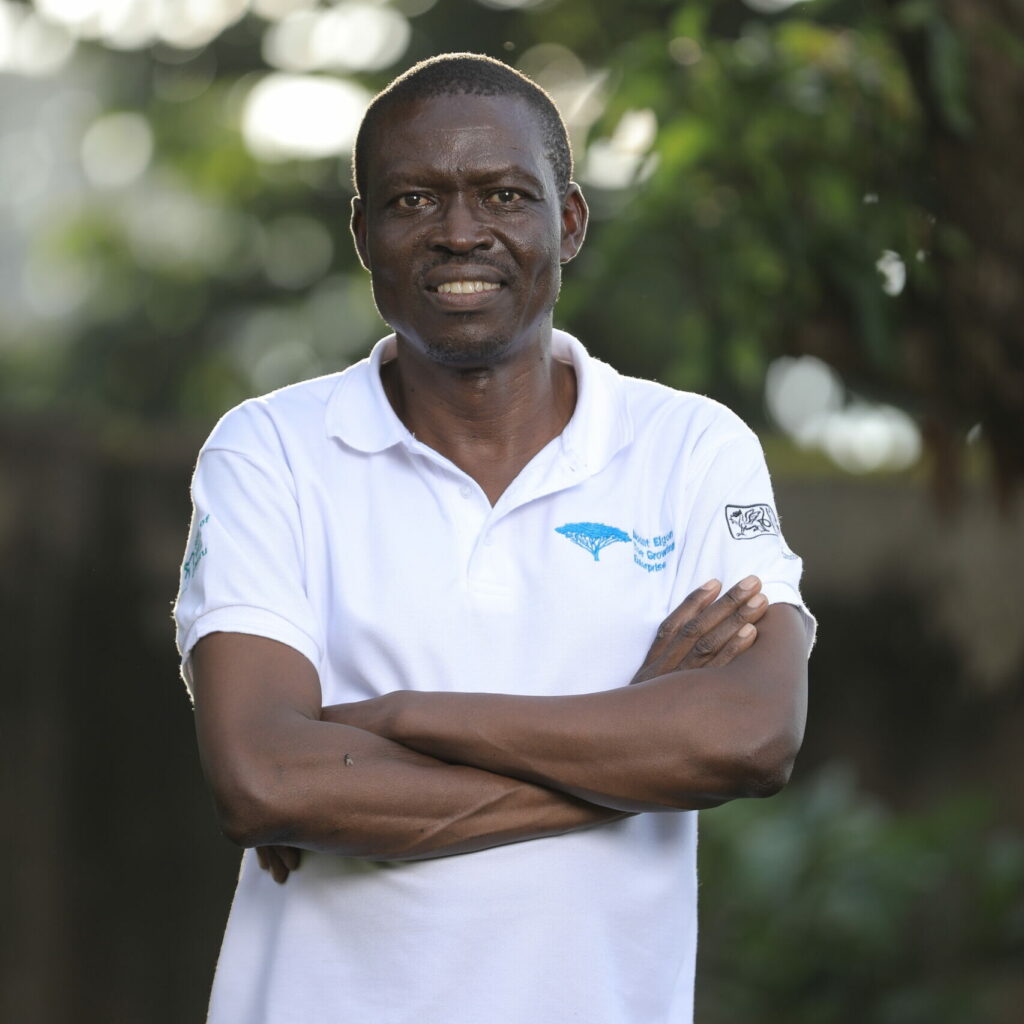- Introduction
Advancing gender equality for climate change resilience and adaptation in Manafwa district, Eastern Uganda is a project funded by the Welsh Government. This project contrasts the business-as-usual approaches to climate change adaptation and mitigation projects which tend to treat men’s needs and concerns as the ‘norm’ and, as such, are considered ‘gender-blind’. Such gender-blind approaches, however, fail to recognise the differences in how women and men are affected by climate hazards, and the difference in opportunities that women and men have to participate in climate solutions. Gender-blind interventions risk perpetuating or deepening gender inequalities, as well as undermining climate resilience and climate change mitigation goals.
On the contrary, climate-resilient development interventions should be designed and implemented so that they intentionally improve women’s and girls’ status and agency (meaning, their capacity for individual choice and action). It is for this reason that METGE’s new gender project was implemented to deliberately promote a gender-responsive approach which is more effective, and more sustainable, than a project without them. It intentionally sought to enhance women in decision-making roles as well as active delivery by achieving positive results in terms of climate-compatible development goals. This sharply contrasts to business-as-usual approaches that fail to challenge discriminatory social norms and relegate women to the side-lines. It is for this reason that an impact evaluation study for a project on advancing gender equality for climate change resilience and adaptation in Manafwa district, Eastern Uganda is being proposed.
- Purpose and Scope of the evaluation
As specified in the project proposal implementation guidelines, it is a requirement to conduct an end of project evaluation of the gender project. The purpose of the evaluation will be to assess whether the project achieved its intended goals and whether it produced unintended consequences, both positive and negative, related to gender equality and power dynamic and outcomes in order to identify lessons and good practices that can improve future projects on Gender Equality and Women’s empowerment.
3.0 Overall objective of the project
To increase gender participation in climate change and natural resource management in Manafwa district of Uganda through: training women in land use planning, agroforestry and soil/water conservation to adapt to climate change; creating new economic opportunities for the women in Fuluma parish; increasing knowledge and strengthen the decision-making power of women and marginalised groups of people in relation to climate change in Manafwa district; promoting new resilient livelihood opportunities and technologies; and documenting good practices and lessons learned.
The project’s expected outcome was women empowered women to adapt and or mitigate against climate change. The relevant outputs were:
- Output 1: Women are empowered to achieve greater control over the management of natural resources.
- Output 2: Increased household food production and improved nutrition thanks to sustainable land management (SLM) practices.
- Output3: Increased access to information and technologies, entrepreneurial and marketing skills
- Output 4: Increased number of women and other marginalised groups of people who take up leadership roles in the community
- Output 5: Community behaviours and norms are changed to promote gender equality.
- Output 6: People in Wales are engaged on climate change issues as they affect Africa.
4.0 Specific Objectives
The main objectives of the proposed review are to:
- Take stock of current project achievements, challenges and opportunities;
- Verify the continued relevance of the project as well as the related sustainability of benefits.
- Assess the project design, objectives, strategies and implementation arrangements in light of changes in the project context and the risks.
- Identify key lessons and make recommendations on how to improve future gender projects
5.0 Target group:
The evaluation will specifically include:
- 9 VSLA groups (each group comprising 30 members), reaching 270 people (40% men and 60% women).
- Manafwa District staff.
- Butta sub county staff.
- Butta community (the project beneficiaries).
- Other NGOS Active in Butta sub county.
6.0 Justification of the impact evaluation study
6.1 Evaluation Use
This evaluation has an explicit focus on Gender equality. METGE, the funders and other stakeholders will be the primary users of this evaluation. A synthesized knowledge product drawing upon lessons learned about the process and management of the joint program will provide recommendations for effective design, planning, management, monitoring and evaluation for future joint programming/programmes on METGE. Lessons learned and information relating to the outcomes of the project and its impact will provide input into the priority areas of focus for future projects. This knowledge product will be shared with key stakeholders, donors and partners. The development of this document will be done by the evaluation team, in close collaboration with the METGE staff.
- Approach and Methodology
The evaluation methodology will be developed by the Evaluation team and presented for approval by METGE. The methodology should use a combination of quantitative and qualitative research methods that are appropriate to address the main evaluation questions. These methods should be applied with respect of human rights and gender equality principles and facilitate the engagement of key stakeholders. Measures will be taken to ensure data quality, validity and credibility of both primary and secondary data gathered and used in the evaluation.
- Ethical Considerations
The ethical considerations will include the following:
- Seeking consent from members of the community and any other person who may qualify to be a respondent, before engaging in data collection.
- Observing the “do-no-harm” and participant-centred principles at all times.
- Ensuring professional quality standards.
- Observing the zero-tolerance to corruption standard
- Deliverables
The Consultant will be expected to deliver the following outputs:
- Inception report
The Consultant shall submit, within 5 (five) days after award of contract, electronic copy of an Inception report to METGE for review and comments by the Project team. The report shall be comprehensive, clear and concise, demonstrating the understanding of the Terms of Reference (ToRs) and the subsequent assignment approach that sets out the methodology, strategy, proposed data collection instruments and timeline of activities. The Consultant shall incorporate comments into the inception report before the implementation of the assignment.
9.2 Final report
Within 15 (fifteen) days of signing the contract the consultant shall submit to METGE an electronic copy of the final impact evaluation report. The final report shall take into account all the comments and feedback on the draft report. At a minimum, the report shall include; table of contents, list of acronyms, executive summary, introduction, evaluation context and purpose, evaluation framework and methodology, findings, case studies, conclusions and recommendations. Annexes should include the TORs, inception report, Project Results Framework with evaluation values from the impact evaluation, list of documents reviewed, list of persons interviewed or consulted, data collection instruments, and the Consulting team members.
9.3 Collected data raw
- Collected data (raw) after analysis submitted to METGE alongside the final report, as well as Workshop/meeting presentations, outlines, photos, videos, etc.
- Roles and Responsibilities
During data collection and analysis, the primary roles of METGE staff and any implementing partner with direct stake in the project, are as informants and reviewers. They may review and provide comments on data collection instruments, and all other deliverables before they are finalized. They must not collect primary data, or participate in translation, analysis, or interpretation of the data.
The following delineates the key roles and responsibilities of METGE Staff and the consultant during the process: METGE will be responsible for the following;
- Provide technical oversight to the execution of the assignment to ensure quality of products including approvals of the deliverables
- Share all necessary documents (including project document, log frame, MEAL plan) to the Consultant to finalize the methodology and data collection tools
- Provide input for study methodology, data collection instruments and report
- Guidance and coordination throughout the evaluation study, keeping communication with Consultant throughout all phases
- Closely follow up the data collection process, ensuring quality control, daily debriefing, meeting the timelines set
The Consultant will be responsible for the following;
- Review all relevant documents for Evaluation study
- Develop an evaluation study protocols which includes survey methodology and the data collection tools (questionnaires; focus group guides, interview protocol, data entry templates, etc.), as appropriate, including a field manual for training, and has to be approved by METGE MEAL team
- Designing the data collection forms, data entry template, procedures and systems, and training of data collector/enumerators in the use of the template
- Develop the field work schedule in consultation with MEAL team
- Supervise the data collection process, give advice and ensure the quality of the data
- Data analysis and report writing, draft the first report and include METGE’s feedback and finalize the report
- The consultant undertaking this evaluation study will recruit competent enumerators for the quantitative survey and field facilitators/note takers for the qualitative study (FGDs and KIIs). The consultant will hire a gender-balanced team of enumerators and field facilitators. All team members must be fluent in the local language of the above-mentioned operational areas.
- Impact evaluation study duration
The overall process is expected to be executed within 15 days including preparation, data collection, analysis and reporting. The Consultant should be able to undertake some of the tasks concurrently to fit within the planned time-frame, without compromising the quality expected. The assignment is expected to commence on 16th, June ,2025 and concluded within 15 days. The consultant is required to propose a work schedule as part of the proposal.
- Skills and competencies of the consultant
The consultant should have at least 7 years’ experience conducting evaluation of similar projects of financial inclusion, cash programming, household income and gender in emergency. Notably, demonstrating knowledge in gender, quantitative and qualitative research, evaluations and development issues and (or) interventions with reputable organizations indicating:
- Academic qualification of a minimum of Master’s degree in relevant technical specialties relevant to this assignment. A doctorate degree would be preferred. Possess skills (supervisory, timeliness, paying attention to compliance details, among others) in managing a consultancy process
- Excellent knowledge of the political and socio-economic context of the people of greater Mbale District in Uganda and Eastern Region.
- Evidence of availability of appropriate qualifications, manpower and key staff that will constitute the team.
- Description of assignments of similar nature carried out. For each assignment previously executed, the consultant shall provide the name and addresses of the Client, date(s) of execution, names of lead and associate firms, a brief description and value of the services provided by the consultant and financing sources.
- The consultant or firm must explain in the methodology, how they intend to mobilise the professional skills for proper implementation of the assignment within the 36 working days earmarked for assignment as indicated in the timeframe below.
- The proposal should contain:
- Any feedback on these Terms of Reference
- Specific roles and responsibilities of the team leader, supervisory chain and other core members of the team including enumerators.
- Schedule of key activities preferably in a format such as a Gantt chart.
- Detailed budget with justification. The evaluation study proposal should include a reasonable detailed budget to cover all costs associated with the evaluation study. This should be submitted by major activities and line items for METGE’s review and decision. This includes a break-down of the cost to contract team members, travel, and lodging and per diem. Other related costs that might be in the budget include expenditures for hiring local personnel (drivers, translators, enumerators and other technical experts), translations, and renting meeting rooms for presentations/workshops.
- Updated CV of Team Leader and other core members of the Team
- Four relevant references from previous similar work completed
- Contract Supervision.
The consultant will be reporting to the Programme Manager.
- Method of application
Interested applicants, firms or individuals, should submit technical and financial proposals including consultants’ CVs, work plan and timelines, and a copy of a report of similar consultancy previously conducted to the address in section 9.2 below.
- Application process
Interested candidates will be expected to provide the following documentation:
- Detailed Technical proposal in response to TOR, with specific focus on interpretation of TORs, technical approach, methodology, and work plan to be used and key selection criteria.
- Company name and TIN number is needed in your address
- A brief description of the Consultants’ organization and an outline, proof of recent experience of the Consultant on assignments of a similar nature is required.
- Financial proposal should indicate, detailed budget breakdown based on expected daily rate, reimbursable expenses, consumables, consultancy fee, all relevant costs, applicable taxes as well as withholding tax etc.
- Company profile or CV including a minimum of 3 references, Names and CVs of individuals or team members proposed, highlighting their experience, and their roles in the achievement of the assignment
- Payment
Terms of payment shall be 60% after approval of the inception report, 40% upon the submission and approval of the final report. All professional fees, administrative costs related to transport, accommodation and stationery as well as remunerating any assistants will be handled by the consultant. Costs will also be subject to taxes.
- Submission of applications
Submit online applications to info@metge.ug and copy joyce.kimono@metge.ug.
Sealed envelopes can be hand delivered to METGE offices and addressed to:
The Executive Director
Mount Elgon Tree Growing Enterprise
P.O Box, 1595, Mbale city.
Plot 29, Boma Avenue.
All applications should be submitted not later than 13/ June/ 2025 by 17:00hrs. Late applications will automatically be disqualified, and only shortlisted candidates will be contacted






